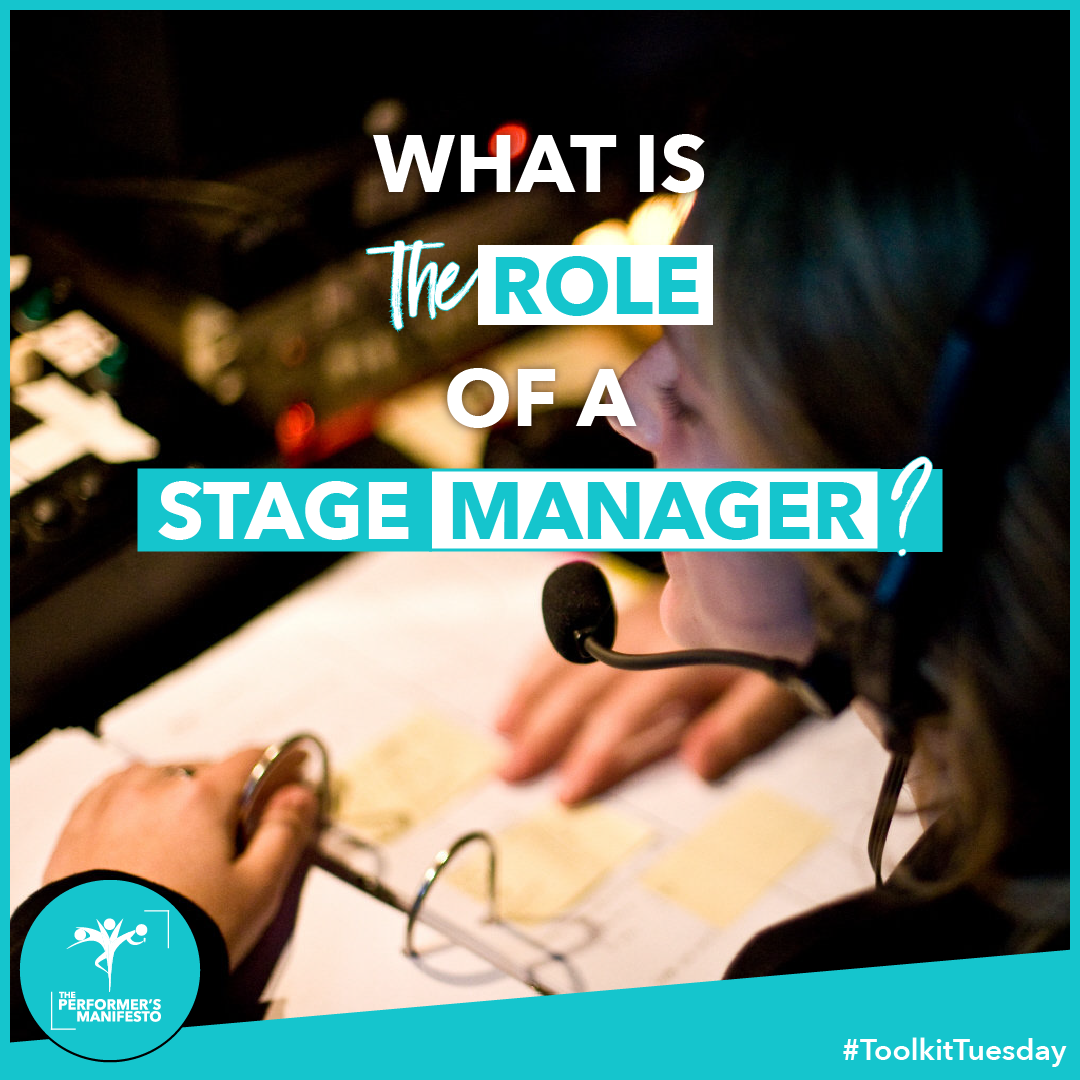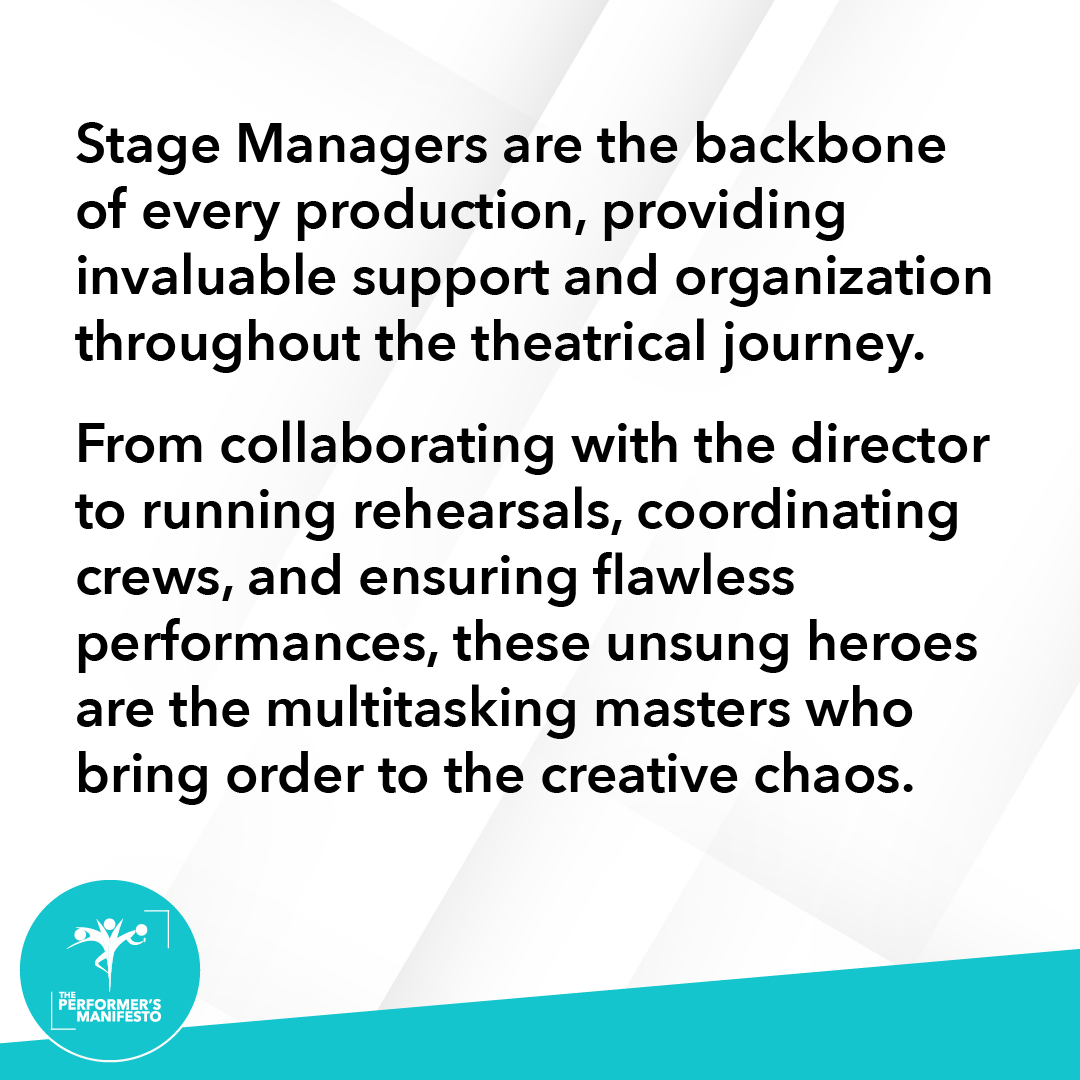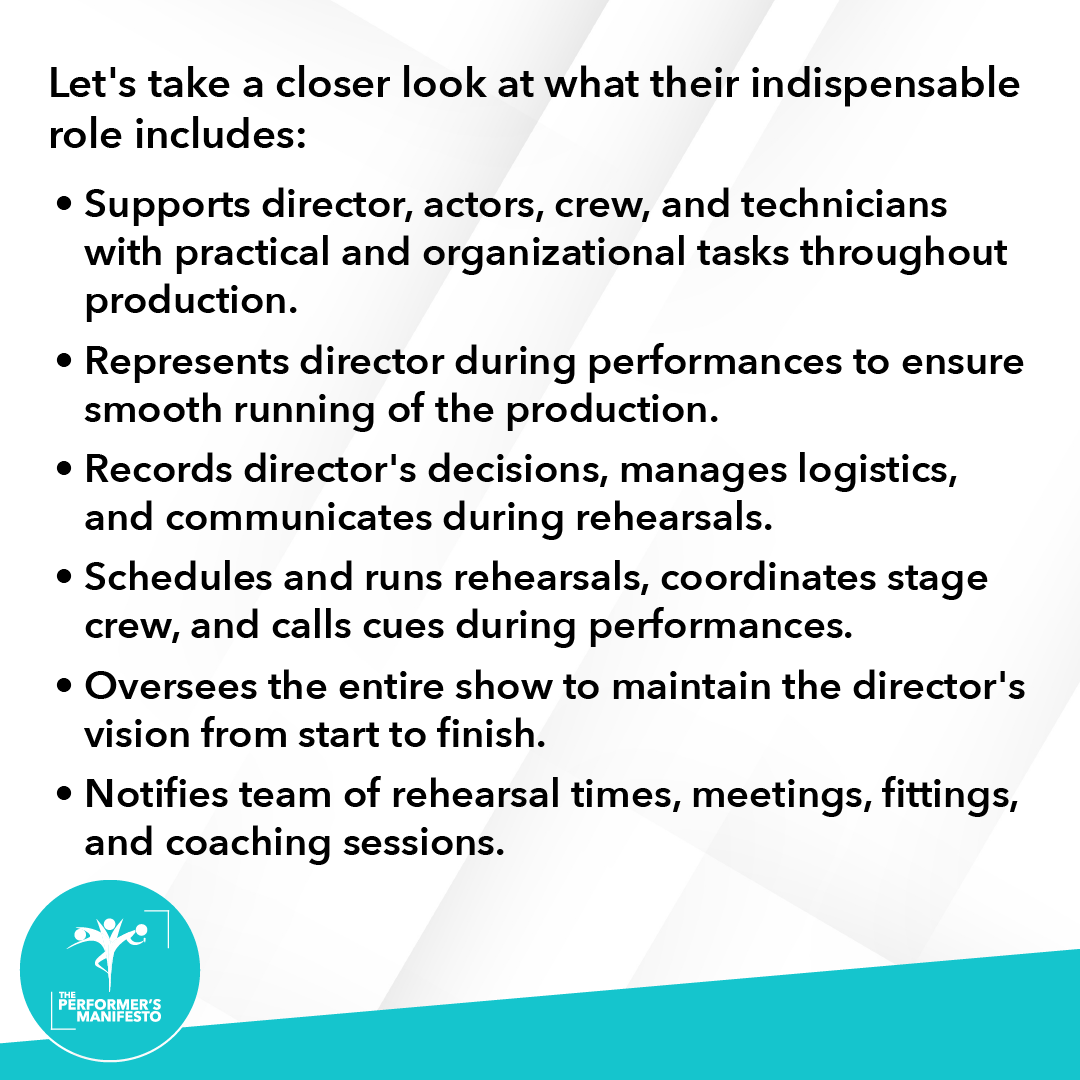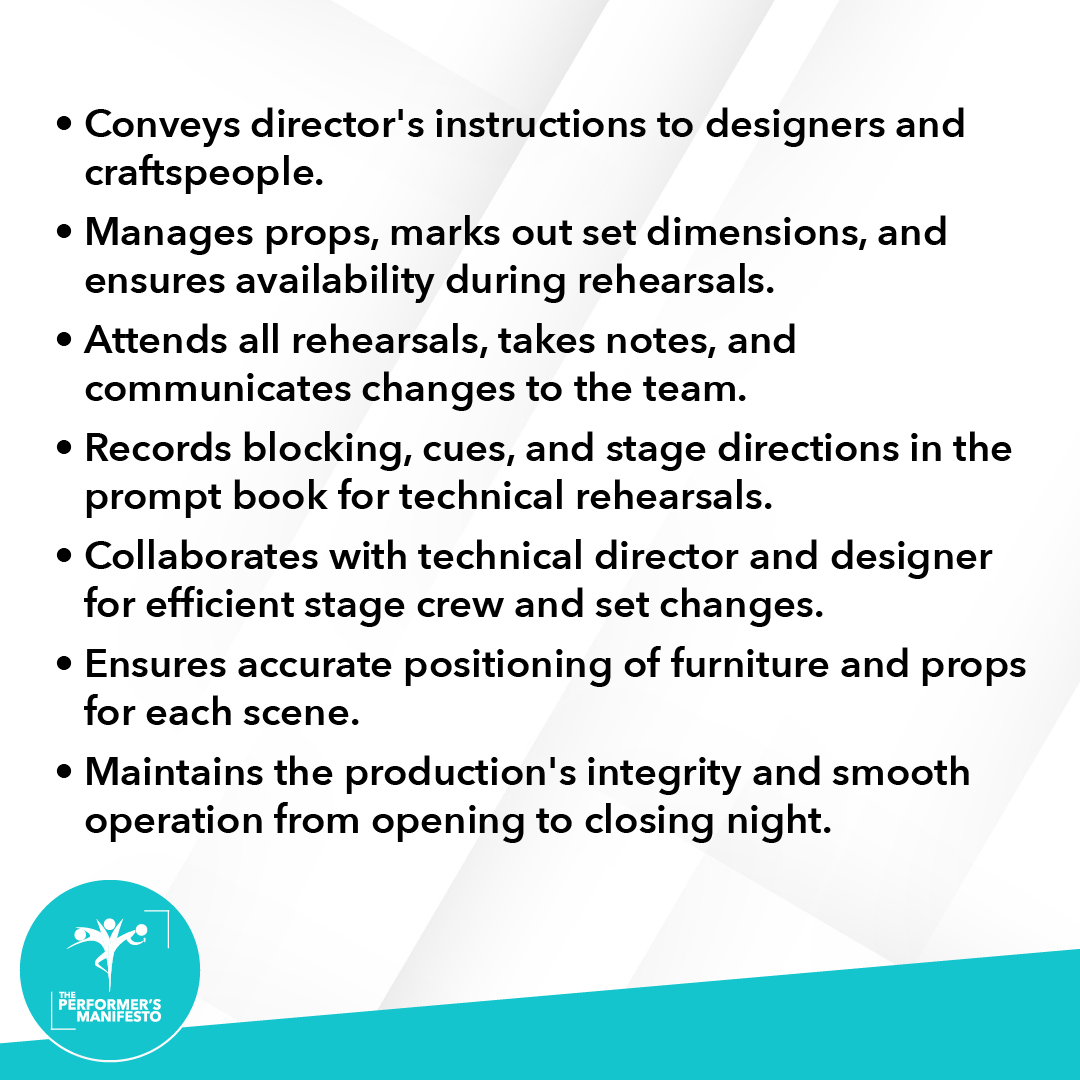Stage managers are the unsung heroes of the theatre, working tirelessly behind the scenes to ensure that the show goes on without a hitch. They are the ultimate multitaskers, supporting everyone involved in the production—from directors to actors and from designers to technicians. Let’s lift the curtain and shine a spotlight on these masters of organization and practicality.
In the realm of theatre, the stage manager holds a pivotal role, especially during rehearsals. Imagine this: the director and the stage manager working side by side, like two peas in a pod. The stage manager becomes the director’s right-hand person, diligently recording every decision about blocking, taking notes for the actors, and overseeing logistical details. This dynamic duo forms a tag team that allows the director to focus on the art of storytelling without getting bogged down in the nitty-gritty.
Now, let’s delve deeper into the stage manager’s toolkit. These multitasking maestros have a wide array of responsibilities throughout each phase of production. From scheduling and running rehearsals to coordinating the stage crew’s work, their to-do list is a performance in itself. They even take centre (back) stage during performances, ensuring that cues are called flawlessly and actors make their entrances with impeccable timing. In short, the stage manager ensures that the show runs smoothly, night after night.
In collaboration with the director, the stage manager intricately determines the schedule for all rehearsals. They keep everyone informed, sending out notifications for rehearsals, meetings, costume fittings, and coaching sessions. It’s akin to being the conductor of a symphony, harmonizing the efforts of a diverse team.
During rehearsals, the stage manager’s prowess is evident. They meticulously mark out the set’s dimensions on the rehearsal hall floor, ensuring that every prop and furnishing is in place for the actors to bring the story to life. Attending every rehearsal, the stage manager keeps a watchful eye on the proceedings and notes any changes made along the way. They play a vital role in maintaining clear communication between the director, designers, and craftspeople.
The pièce de résistance is the prompt book. This master copy of the script contains a treasure trove of information, meticulously recorded by the stage manager. From blocking to light, sound, and set change cues, it’s all there, enabling the stage manager to run technical rehearsals like a well-oiled machine. With a keen eye for detail, they call each cue with precision, seamlessly synchronizing the technical elements with the on-stage action.
In collaboration with the technical director, the stage manager devises efficient plans for the stage crew during set changes. They work hand in hand, drawing up furniture and prop plans to ensure that everything is perfectly positioned on stage for each scene. This coordination is a dance that happens behind the scenes, invisible to the audience but crucial for the magic on stage.
When the curtains rise and the audience applauds, the stage manager steps into the driver’s seat. Although the director’s work may be done, the stage manager’s job has just begun. They become the guardian of the production, ensuring that every aspect runs smoothly until the final bow.
So, the next time you step onto the stage, take a moment to appreciate the diverse group of unsung heroes in black, the stage managers who make the magic happen. They are the glue that holds the production together, the conductors of chaos, and the masters of coordination. Without them, the show simply wouldn’t go on.
Let’s give a round of applause to these extraordinary individuals who work tirelessly behind the scenes to create the theatrical wonders we all love. And why not share your own experiences or ways you celebrate the incredible stage managers in your life? Bravo, stage managers, bravo!





